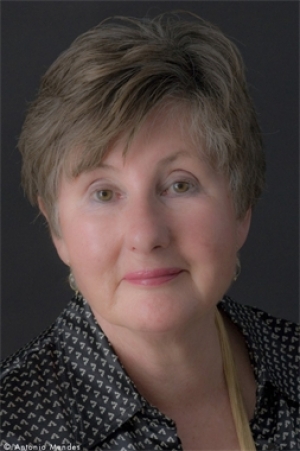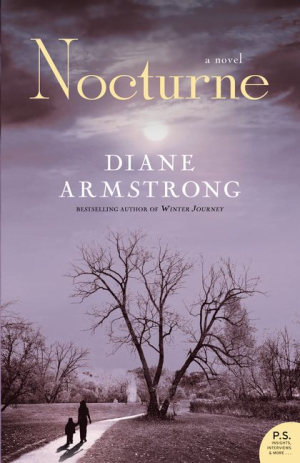Archive
This is a heavy book with which to make a leap of faith: to trust that one life can make a difference in the deeply compromised pursuit of international justice and security. In the epilogue to her biography of Sergio Vieira de Mello, Samantha Power suggests ‘if there was anyone who could have wrung from the UN whatever reform and promise it could muster, it was he’. In this long book, depicting some of the worst that humanity can inflict on itself, Power builds this image of Vieira de Mello. If her claim for his significance is justified, then we might indeed revisit the conditions for such faith.
... (read more)Despite increasing competition from Internet search engines and online encyclopedias, quality information titles for children continue to be produced in Australia. Well-researched non-fiction books that bring their subject matter to life can have a much greater impact on an inquisitive mind than is the case with the fact-bites of Google.
... (read more)Patrons Corner | Interview with Elisabeth Holdsworth
When did you start reading ABR?
Several lifetimes ago. In the government offices where I worked, ABR lay around with the New Yorker and the London Review of Books. I assumed, because ABR offered a similar quality of reading experience, that the magazine enjoyed the same level of financial resources!
... (read more)Poems 1980–2008 selects from Jan Owen’s first five collections and adds eighty pages of new poems. This is an accomplished, playful, intelligent collection which confirms Owen’s status in the front ranks of Australian poets (why is there so little criticism or commentary on her work?). It is full of angels, goddesses, older men, iconic art, imagined sex, strange fruit, flowers, trees, birds, travels through Europe and Asia – encyclopedic ideas and sinuous, crafted language.
... (read more)Francesca Beddie reviews ‘Worrying About China: The language of Chinese critical inquiry’ by Gloria Davies
Gloria Davies quotes William Blake in the acknowledgments to her book: ‘true friendship is argument.’ When choosing that quote, I wonder if she had the Chinese concept of zhengyou in mind. That is the word Kevin Rudd chose for friendship when he spoke to the students at Peking University in April this year. Zhengyou is not just about friendship, for which there is another Chinese word (youyi); it defines a true friend as one who dares to disagree.
... (read more)Jay Thompson reviews ‘At Thy Call: We did not falter’ by Clive Holt
At Thy Call is Clive Holt’s account of his experience as a soldier in the Angolan War. The author aims to convey the enormity of this event and the impact it has had upon the servicemen involved. In doing this, he provides an alternative to those writings that have addressed only ‘the tactical components of the war’.
The book opens in the late 1980s, when the teenage Holt entered the conflict in Angola as part of South Africa’s compulsory two-year military conscription for white males. Holt describes the carnage and fear that he and his fellow servicemen frequently experienced. The author also discusses his struggle with Post Traumatic Stress Disorder (PTSD) in the war’s aftermath.
... (read more)At a time when some fiction writers are busy defending their right to incorporate autobiographical elements, and some non-fiction writers are being charged with fabrication, it seems timely of Nam Le to begin his collection of stories with one that plays with notions of authenticity in literature ...
... (read more)Get out that DVD of Gentlemen Prefer Blondes. Locate the scene with Marilyn Monroe in the pink satin strapless number, singing ‘Diamonds Are a Girl’s Best Friend’. Study the dancers and find that statuesque blonde in the black bustier posing as a human candelabrum. That’s Anna David. (Her best friend, Eleanor Phillips, is one of the all-American girls with pink roses in their hair). It wasn’t Anna’s first film – if you’re very alert you can spot her in All About Eve – and it wasn’t her last. Hitchcock cast her as Kim Novak’s double in Vertigo, and Tippi Hedren’s in The Birds.
... (read more)Diane Armstrong is a prolific, award-winning journalist whose book-length publications began with a memoir of family history, Mosaic (1998), and The Voyage of their Life (2001), set on the SS Derna, which brought Polish-born Armstrong, her parents and 500 refugees to Australia in 1948. In 2004 Armstrong turned to fiction with Winter Journey, about a Polish-Australian forensic dentist. Now we have Nocturne, which, although it features one or two Australian characters, takes place in Warsaw, England and Germany during World War II. It is a gallant and gut-wrenching story but a difficult book to review, because it suffers from inadequate editing.
... (read more)It is tempting to become impatient, and to reach for a gun to resolve a problem, or a knife to cut a Gordian knot. As I write, the Burmese generals have been dithering and obfuscating rather than letting aid workers into their storm-ravaged country. The paranoid preservation of their honour and control bids fair to cause the death of tens of thousands of people. If the Burmese people cannot rise up to change this (and as poor, pacifist Buddhists, they are peculiarly ill equipped to overwhelm a shameless and violent régime), then we should surely invade, distribute the emergency aid, and replace the generals with responsible government. Some people only respond to violence, and surely justice demands this intervention.
... (read more)








